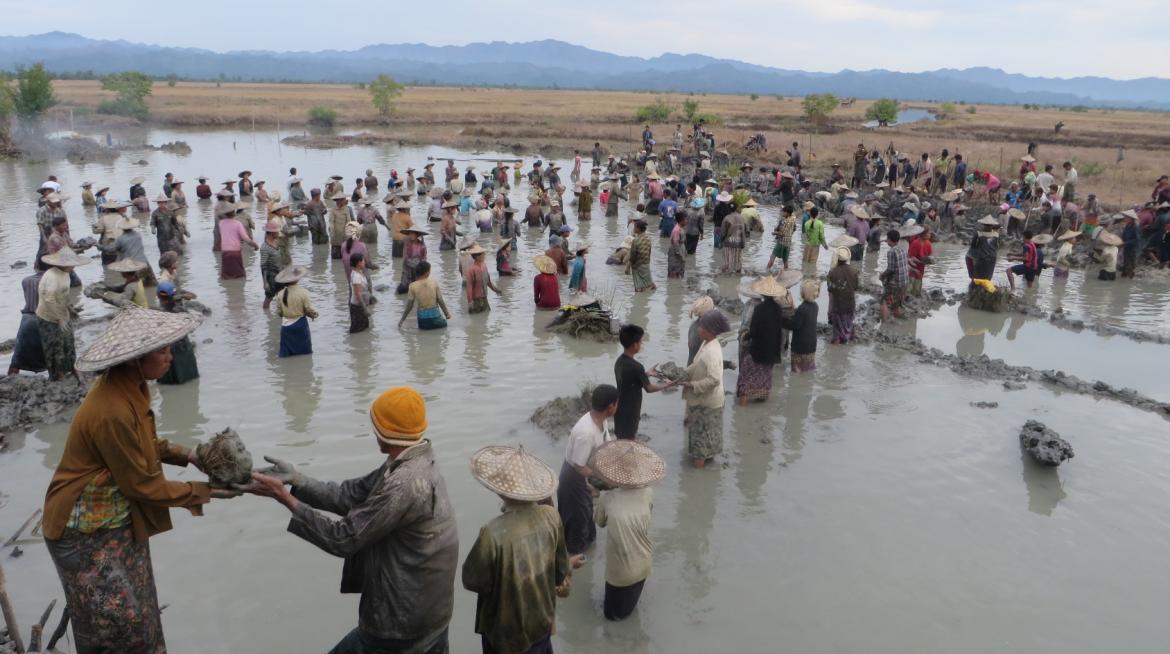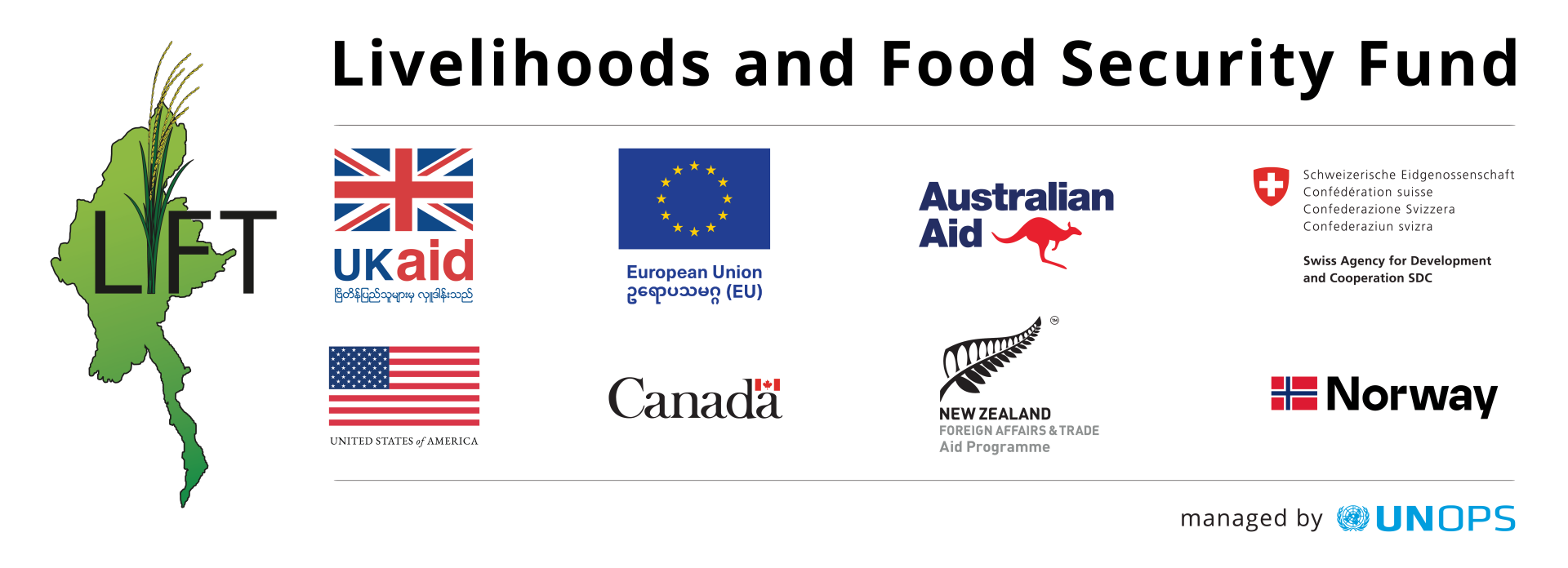
LIFT’s Programme Analyst Intern, Shagun Gupta has developed a working paper on the socioeconomic situation in Rakhine, aiming to combine information on the State to serve as a useful reference for development partners. To this end, she invites feedback and input from partners and stakeholders who have solid information on Rakhine State.
The working paper is here.
After a week of traveling to LIFT project sites in Rakhine, Shagun found that there is a lack of unity of information on Rakhine State and, back in Yangon, found it hard to access the disparate information. With encouragement from the Rakhine Programme's Officer, Brigitte Hoermann, she has created a combined document on Rakhine; Development in Times of Transition: the Socio-economic Status of Rakhine State, Myanmar. This is based on the analysis of some 200 posts since 2010.
The study is comprised of five sections including a fact sheet:
- Background/Historical – the majority of this section is based on International Crisis Group (ICG) reports.
- Demographics of Rakhine State – this section relies heavily on the 2014 Census report.
- Economic context – this section included subjects which are relevant to the work that LIFT does in Rakhine, including poverty, migration, farming, employment, fishing. The information was gathered via the LIFT-funded Tat Lan project.
- Social context – this section highlights some of LIFT’s focus areas for 2016-18 programme. These include malnutrition, stunting and the processes of Maternal Cash Transfers (MCTs).
- Conflict – this final section is vital as it focuses on the underlying cause of tension in Rakhine. The study begins with a brief history of the Buddhists and Muslim relations between 2012 and 2014. Then a chronology, in the form of charts and finally graph locations.
The maps in the report come from the census report. Reliable data for Rakhine State also remains a challlenge. All information sources are referenced.
The audience for this study are development stakeholders, donors, the Myanmar government, INGOs, local organisations and the general public. It is anticipated that there will be English and Myanmar language versions of the report.
Please send your feedback directly to Shagun: shagung@unops.org, and also to info@lift-fund.org.
For more information about LIFT's Rakhine programme see here.
With thanks for your collaboration.


